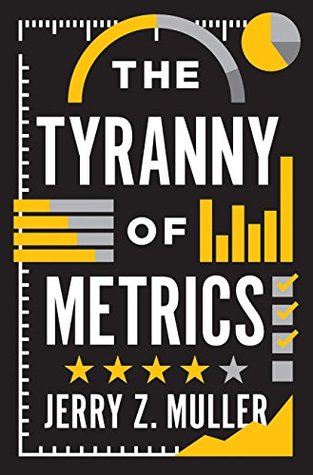More on this book
Community
Kindle Notes & Highlights
Based on the real-life experiences of its creators,
One of the recurrent themes of The Wire is the salience of metrics:
The costs of measuring may be greater than the benefits.
is the aspiration to replace judgment based on experience with standardized measurement.
Decisions based on big data are useful when the experience of any single practitioner is likely to be too limited to develop an intuitive feel for or reliable measure of efficacy.
If what is actually measured is a reasonable proxy for what is intended to be measured, and if it is combined with judgment, then measurement can help practitioners to assess their own performance,
But problems arise when such measures become the criteria used to reward and punish—when metrics become the basis of pay-for-performance or ratings.
When metrics are used by managers as a tool to control professionals, it often creates a tension between the managers who seek to measure and reward performance, and the ethos of the professionals (doctors, nurses, policemen, teachers, professors, etc.). The professional ethos is based on mastery of a body of specialized knowledge acquired through an extended process of education and training;
for the professional ethos tends to discount issues of cost and opportunity cost.
the need for greater accountability and the gathering of more data, and directing the regional accrediting agencies to make “performance outcomes” the core of their
assessment.
I had been interested in the history of capitalism,
it draws not only from a variety of disciplines but from a variety of political orientations. I have drawn upon evidence and insight from wherever they were to be found.
one could call it a cultural “meme,” an “épistème,” a “discourse,” a “paradigm,” a “self-reinforcing rhetorical system,”1 or simply a fashion.
“Not everything that can be counted counts, and not everything that counts can be counted.”
many people become adept at manipulating performance indicators through a variety of methods,
Whenever reward is tied to measured performance, metric fixation invites gaming.
“[t]he more any quantitative social indicator is used for social decision-making, the more subject it will be to corruption pressures and the more apt it will be to distort and corrupt
the social processes it is intended to monitor.”
To put it another way, anything that can be measured and rewarded will be gamed.
Metric fixation, which aspires to imitate science, too often resembles faith.
that simplification may lead to distortion, since making things comparable often means that they are stripped of their context, history, and meaning.
making it easier to reach the metric goal,


